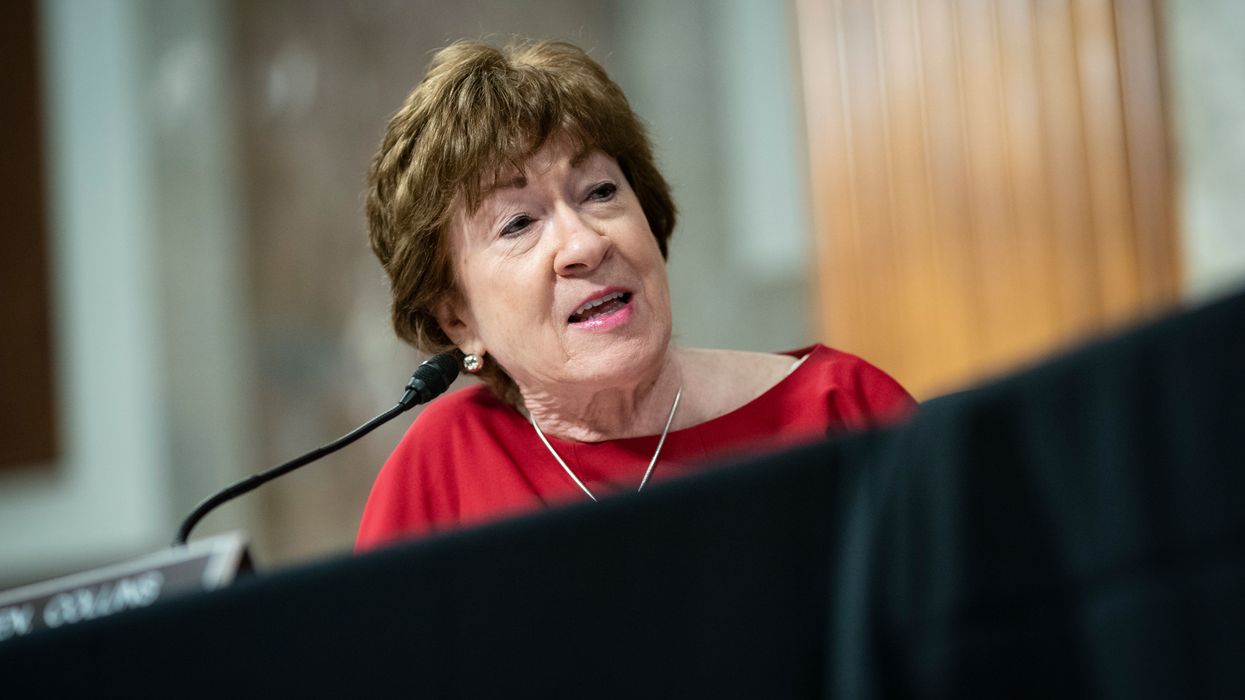Griffiths is the editor of Independent Voter News, where a version of this story first appeared.
Maine's Senate race is one of the most competitive in the country, and central to the Democrats' efforts to take back control of the chamber from the Republicans. As the final stretch of the campaign begins, however, voters will get at least one high-profile opportunity to consider the contest as more than the usual two-party showdown.
The first televised debate, on Sept. 11, will include not only Republican incumbent Susan Collins and her principal challenger, Democratic state House Speaker Sara Gideon, but also independents Lisa Savage and Max Linn.
The arrangement is notable because it's so different from how the presidential debates are handled, and because it means there will be more of a consequence for the state's unique election system.
The two independents have collectively notched between 10 percent and 20 percent of the vote in recent polls — but will still get the free TV exposure vital to their longshot challenges. In contrast, making the presidential debate stage requires a steady 15 percent or better showing in voter surveys, something no one but the GOP and Democratic nominees has managed in a quarter century.
Moreover, Maine is for now the only state that elects members of Congress using ranked-choice voting, which elevates the importance of third-party and independent candidates and makes their inclusion in the debates all the more important.
The second choices of independents tipped the election two years ago to Jared Golden, the forest person ever sent to the House in a ranked election. Nov. 3 will mark the nation's first RCV contest for a Senate seat.
Prior to the system's adoption in the state four years ago, four visible candidates in a tight Senate race would likely have meant a winner who secured only a plurality of the vote. Now, no winner will be declared who is not endorsed on a majority of ballots.
Advocates of ranked elections say the system gives voters greater confidence to pick the candidate they truly want to win as their first preference — as opposed to voting with a "lesser-of-two-evils mindset," while also indicating who they would select in subsequent runoffs by indicating a second, third and fourth preference.
This also means that candidates have to compete for voters they might not have had to under a choose-one voting method. Now, the Republican and Democratic nominees have to figure out how they can appeal to voters who prefer the independent and third-party nominees.
Having all four candidates on the debate stage at the same time gives voters a chance to effectively compare and contrast the nominees. It can help them make a more informed decision on who to rank second, third and fourth.
Candidates, on the other hand, have to be more mindful and considerate of the ideas and opinions of the others on stage. How Collins and Gideon respond to independent ideas and opinions could sway the election one way or another.
In other words, voters have more choice and the independent candidates have a stronger voice in the process — something voters in other states won't see much during the general election campaign.
It's highly likely the outcome will be either a fifth term for Collins or a first term for Gideon, because they are the major-party candidates and have received millions in donations because Maine is central to both the GOP and Democratic plans for securing control of the Senate for the coming two years. But, advocates of RCV say, the inclusion of more voices that get heard and the ability of voters to get behind more choices can only be a good thing for democracy
Visit IVN.us for more coverage from Independent Voter News.




















Trump & Hegseth gave Mark Kelly a huge 2028 gift